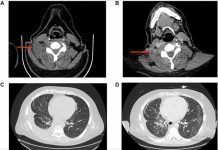The National Institute for Health and Care Excellence (NICE) said they need more research into CBD medicines before the NHS can prescribe them in general
The fast-tracked guidance follows the re-classification of these products last year to allow specialist doctors to prescribe them where the clinical needs of patients cannot be met by licensed medicines.
The draft guidance, which is open for public consultation until 5 September 2019, considers the use of these products for people with intractable nausea and vomiting as a result of chemotherapy, chronic pain, spasticity, and severe treatment-resistant epilepsy.
NHS England has also published a review aimed at assessing the barriers to prescribing cannabis-based medicinal products where it is safe and clinically appropriate.
The review highlights that the lack of evidence about the long term safety and effectiveness of medicinal cannabis has weighed heavily on prescribing decisions and recommends two clinical trials be set up.
The draft NICE guidance looks at most of the cannabis-based medicinal products for treating these conditions, including the licensed products Sativex for treating spasticity in people with multiple sclerosis and nabilone for treating symptoms of nausea and vomiting in people having chemotherapy.
It makes 8 separate recommendations for further research across all the indications and cannabis-based medicinal products covered in the guidance, reflecting the overall lack of clinical and cost-effectiveness evidence for these products.
The committee were unable to make a recommendation about the use of cannabis-based medicines for severe treatment-resistant epilepsy because there was a lack of clear evidence that these treatments provide any benefits.
The draft guidance recommends nabilone as an add-on treatment for adults with chemotherapy-induced nausea and vomiting which hasn’t responded to conventional licensed medicines.
The draft guidance does not recommend Sativex for treating spasticity in people with multiple sclerosis because it was found to be not cost-effective at its current list price in relation to the benefits it provides. It also says that other cannabis-based medicinal products should not be offered to treat spasticity unless as part of a clinical trial.
The draft guidance also says that, other than cannabidiol (CBD, a pure, plant-derived cannabinoid) used on its own in the context of a clinical trial, no cannabis-based medicinal products should be used for treating chronic pain. Again, this is because the benefits they offer are very small compared with their high costs and so they can’t be considered a cost-effective use of NHS resources.
Paul Chrisp, director of the Centre for Guidelines at NICE, said:
“We recognise that some people will be disappointed that we have not been able to recommend the wider use of cannabis-based medicinal products. However, we were concerned when we began developing this guidance that a robust evidence base for these mostly unlicensed products was probably lacking. Having now considered all the available evidence it’s therefore not surprising that the committee has not been able to make many positive recommendations about their use.
“In most cases, the draft guidance recommends that more research is carried out, echoing the recent call by the National Institute of Health Research for research proposals for these products. To that end NICE welcomes the recent suggestion from the House of Commons Health and Social Care Committee that companies should be encouraged to undertake or enable research into their medicinal cannabis products.”
The NHS England review, developed by listening to families and the specialist clinicians responsible for care, makes clear that consistency is key and to ensure this, clinicians need the best information and support available to make decisions to prescribe medicinal cannabis for children with severe epilepsy which does not respond to regular treatment.
New research and a network of clinical experts who can provide doctors with advice are among the recommendations made.
Dr Keith Ridge, chief pharmaceutical officer at NHS England said:
“Without sufficient evidence to help them balance potential benefits against potential harms when they are deciding whether to prescribe medicinal cannabis to children with very severe epilepsy, it is clear clinicians are very reluctant to prescribe.
“We heard loud and clear the concerns and frustration the children’s families are feeling, but these recommendations aim to help us develop the evidence base to understand how safe these products are, and ensure education and expert advice is available to support clinicians across the UK.”











